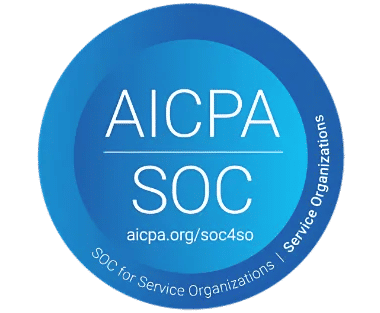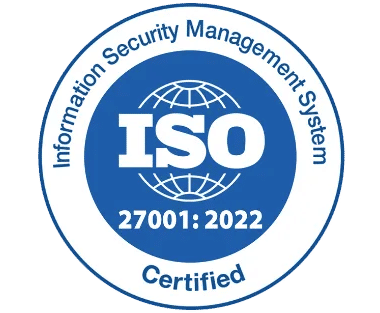How Asset Management Boosts Small Business Efficiency

Asset management for small business is essential for staying compliant and reducing risks. By keeping accurate records and tracking assets effectively, businesses can make sure they follow industry regulations and steer clear of costly fines.
This careful attention not only safeguards the company but also boosts its reputation in the market, showing customers that it’s reliable and trustworthy.
Challenges Faced by Small Business While Managing Assets
Managing assets requires reliable software tools, but the cost of asset monitoring solution can be prohibitive for small businesses. With limited resources small companies often struggle to keep track of their renewal dates, legal fillings and compliance requirements, which might lead in receiving large penalties.
Those disorganized management of these critical assets can lead to inefficiencies, making it harder for small businesses to maintain ownership and control.
Let’s see the challenges,
- Lack of proper asset tracking might lead to getting tax or legal problems
- Manual process can lead to higher operational costs
- Absence of formal records for expired or redundant tools: This can lead to overspending.
Understanding Why Asset Management for Small Business
When it comes to small business, knowing their resources helps in growth and finding new opportunities. It keeps them organized and running the process smoothly. With proper software, small businesses can make smarter decisions, avoid legal issues, and focus on what really matters growing their business and staying competitive.
Benefits of Using Asset Tracking System for Small Business
Implementing an asset management process can offer small businesses numerous advantages that contribute to efficiency, cost savings, and overall growth.
Here are some key benefits,
- Streamlined Asset Tracking: Small businesses often have limited resources. A centralized system allows for easy tracking of all IT assets, helping to prevent losses and ensuring that every item is accounted for without the hassle of manual inventory checks.
- Increased Operational Efficiency: Automated asset monitoring process will reduce and helps to spend time on tracking and maintaining the inventory. This efficiency allows small businesses to concentrate on growth and employees to focus on core activities rather than administrative tasks.
- Better Decision-Making: Data analytics provided by the systems will empower small business owners to make informed decisions regarding future investments and maintenance strategies. By understanding asset performance and lifecycle, businesses can strategically plan upgrades and replacements.
- Scalability for Growth: As small businesses expand, their needs grow. A management system is designed to scale with the business, easily accommodating new requirements and providing insights that support sustainable growth.
- Improved Teamwork: With a clear view of all IT assets, teams can collaborate more effectively. Employees can easily access the information they need about equipment availability, which promotes teamwork and ensures projects run smoothly.
- Simplified Compliance: Keeping track of software licenses is crucial for small businesses. An asset tracking system simplifies compliance by maintaining accurate records, making it easier to adhere to industry regulations and avoid costly fines.
How to Choose the Asset Management System for Small Business
When it comes to small businesses investing their capital, selecting effective tools is crucial for enhancing efficiency. Finding an affordable asset management system with essential features can foster growth and streamline operations. Let’s explore how to choose the right software.
1) Automation and Smart Renewals
To streamline operations and reduce administrative burdens, utilizing a workflow engine to automate the renewal of contracts, licenses, and cloud applications can be a game-changer. By managing software licenses, service agreements, and cloud application subscriptions in one centralized system, small businesses can significantly minimize the risk of missing renewal deadlines and incurring unexpected costs.
This not only saves time but also ensures compliance and maximizes the value of their investments and allowing small businesses to focus on growth rather than getting burdened down in paperwork and manual processes.
2) Streamlined Asset Oversight
They often find hurdle to keep track of their assets. By regularly examining contracts, software licenses or hardware business can ensure they are fully aware of their resources. This proactive approach allows them to identify idle equipment and develop effective action plans to maximize usage.
Implementing these practices not only helps reduce unnecessary costs but also improves overall operational efficiency, addressing the pain points of managing limited resources in a competitive environment.
3) Efficient Tracking process
Easily create and track barcodes and QR codes directly within the platform, allowing small businesses to utilize mobile devices or barcode scanners for quick verification of details. This feature enhances security for commercial and purchase-related documents, addressing common pain points such as asset mismanagement and compliance risks.
By simplifying the verification processes, small businesses can ensure their resources are organized and secure, ultimately boosting productivity and reducing the risk of costly errors.
4) Simplified Data Management
Small business face struggles handling large data, with help of asset monitoring solutions business owners can export data to excel and analyse their information without any hassle.
The simplified data presentation eliminates unnecessary columns, making it easier to focus on the information that truly matters. This means you spend less time filtering data and more time making informed decisions that drive your business forward.
By streamlining your data management process, you can alleviate common pain points and enhance your overall efficiency.

The Role of Affordable Asset Management in Small Business Efficiency
Implementing a cost-effective asset management directly impacts small business operations. By streamlining workflows and automating the process, businesses can minimize manual.
Furthermore, having real-time visibility into the performance aids in better decision-making, allowing businesses to pivot and adjust strategies quickly.
- The Financial Benefits
One of the primary advantages of asset tracking system is the potential for significant financial savings. Small businesses can reduce overhead costs associated with asset management, such as maintenance and replacement expenses.
With a clear overview, businesses can budget more effectively, ensuring that funds are allocated to areas that yield the highest return on investment. - Enhanced Productivity
Investing in these tools plays a pivotal role in enhancing productivity. With streamlined processes, employees can focus on their core tasks rather than getting bogged down by administrative duties.
Additionally, this tool helps in optimizing time spent on tasks, allowing for quicker turnaround times and improved service delivery. - Choosing the Right Solution
When selecting an affordable asset management, businesses should consider several factors. Key features to look for include ease of use, scalability, and comprehensive reporting capabilities.
A good solution should be adaptable to the evolving needs of the business and should support growth without imposing additional financial burdens.
Conclusion
When selecting asset monitoring solution for your small business, it’s essential to assess your specific needs and budget carefully. Start by identifying the core challenges your business faces and consider how different software solutions can help address those issues.
Look for software that not only fits within your financial constraints but also offers the features that matter most to your operations. Looking to implement cost-effective asset management tool? Book a free demo today, we’re here to help!
Frequently Asked Questions
1. What is asset management software?
Business needs to manage both physical (like machinery and inventory) and digital assets (software licenses and patents). Implementing the right tool in your business streamline this process by providing a structured way to monitor and manage the process. This leads to improved productivity, reduced equipment failures, enhanced compliance, increased customer satisfaction, and better employee safety.
2. How does asset tracking solution ensure compliance?
It helps maintain accurate records of software licenses and compliance requirements, making it easier for businesses to adhere to industry regulations and avoid costly fines.
3. How can asset management software improve efficiency?
By automating asset tracking, providing real-time visibility, and streamlining processes, asset management software enables small businesses to minimize administrative burdens, reduce overhead costs, and enhance productivity.









_svxLrd-8yH.png)

_2VYSFUTN5m.png)

_JiluXJRGNl.svg)

_2djTKNocf.png)





_Rapo0hRMBy.png)


























